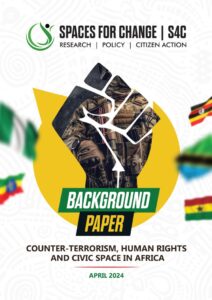Counter-terrorism efforts in Africa have intensified, particularly in the sub-Saharan region, following the increase in terrorism-related deaths. Recent data from the Global Terrorism Index (GTI) indicates that sub-Saharan Africa recorded the largest increase in terrorism deaths, rising by eight percent in 2022 compared to the 2021 death rate. The GTI noted that in 2022, sixty percent of all global terrorism occurred in sub-Saharan Africa. Corroborating this finding, the African Union acknowledged that “the resurgence of unconstitutional changes of government; the expanding threat of terrorism and violent extremism across the Continent, including the influx of foreign terrorist fighters, private military companies and mercenaries, the proliferation of armed groups, as well as transnational organized crime, negatively impact the peace, security, stability, sovereignty and territorial integrity of some Member States. The countermeasures adopted by countries in the region, though well-intentioned, have produced certain negative consequences that have adversely affected the human rights of civilian populations while constraining the civic space across the continent.
Human rights and national security are interdependent and mutually-reinforcing objectives. In other words, human rights must lie at the center of efforts to “preserve the security of African states in line with the Common African Defense and Security Policy and within the spirit of finding African security solutions”. Consistent with the whole-of-government approach, civilians, communities, and civil society organizations, who often bear the brunt of national and regional counterterrorism operations, have a crucial role to play in the fight against terrorism and violent extremism. Evidence shows that the engagement of this cross-section of society helps to craft countermeasures that are locally-rooted, resilient, accountable and in alignment with human rights standards. This paper examines the impact of counterterrorism responses in Africa, highlighting how countries ravaged by terrorism can collaborate with civil society to protect human rights while countering terrorism.




















